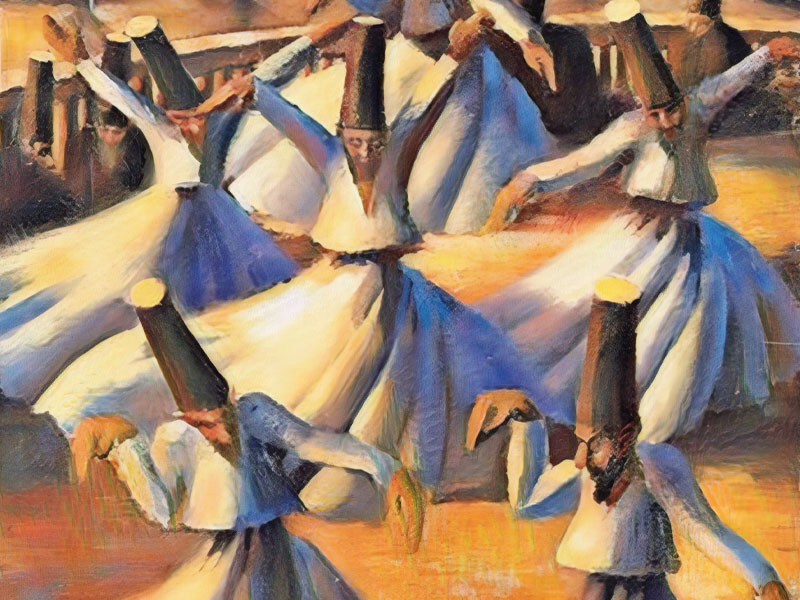Sufi “Maqamat” in Tlemcen Folk Poetry - Ibn Misayib, Bin Traiki and Al-Mandasy as Models
Issue 49

Dr. Fatiha Bilhaji
University Centre - Maghniah-Tlemcen
Sufi folk poetry is considered to be one of the finest literary genres, as it draws on the inexhaustible source, the true Islamic religion, and combines the beauty of the spirit, thought, style, and symbolism of form and the splendour of creativity. It emerged from true believing souls overflowing with spiritual emotions; seeking to transform their feelings through their journey of following the divine light. Their journey starts by detaching from the pleasures of the earthly world, transcending through the skies of Haal’s (state of divine consciousness) and Maqaams ( the various stages a Sufi's soul must attain in its search for God) while yearning for introspection and spiritual closeness to God.
Divine love is at the forefront of Sufi poetry, because it embodies their way of life and religion. Then comes the revelation about the love of the Messenger-peace and blessings be upon him- as he is the light that shines in the spirit of the Sufi and the Karamahs (high-mindedness that refers to supernatural wonders performed by Muslim saints). The Sufi uses supplication as a means for "sanctification" or "purification of the self". He tries to refrain from behaviours that do not help him reach this sought after status of sanctification. Sufis commit themselves to refraining from sin and to actions that help them return to God.
Our research describes the Maqamat of Sufis’ as reflected in the most renowned and prominent traditional poets of Tlemcen, such as Ibn Misayib, Bin Traiki and Al-Mandasy.
Among them, the maqam of divine love, of repentance and pleading, the maqam of the love of the Messenger (may peace and blessings be upon him), the maqam of longing for the Messenger and the celebration of his traits, and the maqam of asceticism and piety accompanied by wisdom and sermon.



































































